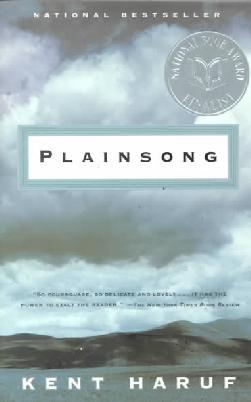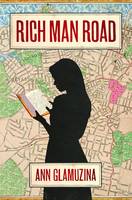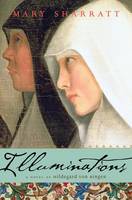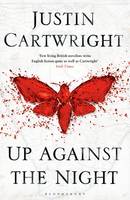Had Goldilocks been a bit less piggy and slothful, she might have raised her eyes to the bookshelves of the three bears, grabbed a read, and initiated a discussion with them when they returned - thereby founding the first book group in history.
But she did not, leaving us instead with the Holy Trinity of comparisons: too hard; too soft; just right. Here's how my five book groups responded to some of our reads in September:
 The Orchardist by Amanda Coplin tells the story of a lone bachelor on an isolated farm, whose peace is disturbed by the arrival of two feral, pregnant teenage girls. It was described by one Book Group member as "like reading a silent movie". It is tonal, descriptive and almost dialogue free. I can't help but compare it with the (in my opinion) superior Plainsong by Kent Haruf. A book that also explores the theme of lone bachelors and (in this case) a single pregnant teenage girl. Don't read them one after the other.
The Orchardist by Amanda Coplin tells the story of a lone bachelor on an isolated farm, whose peace is disturbed by the arrival of two feral, pregnant teenage girls. It was described by one Book Group member as "like reading a silent movie". It is tonal, descriptive and almost dialogue free. I can't help but compare it with the (in my opinion) superior Plainsong by Kent Haruf. A book that also explores the theme of lone bachelors and (in this case) a single pregnant teenage girl. Don't read them one after the other.
 Rich Man Road by Ann Glamuzina is a New Zealand novel set in Auckland. The title is a play on the words Richmond Road, which the two main characters - both new immigrants - have difficulty in pronouncing. This book is proving to be very popular in one of my book groups. I however, stopped reading it after 50 pages. I blame the fact that it is a book that starts at the end of the story - thereby subjecting the reader to a further 250 pages of explanation. I will mention here that both main characters are nuns. It has been a bit of a nunnish month, as you will see.
Rich Man Road by Ann Glamuzina is a New Zealand novel set in Auckland. The title is a play on the words Richmond Road, which the two main characters - both new immigrants - have difficulty in pronouncing. This book is proving to be very popular in one of my book groups. I however, stopped reading it after 50 pages. I blame the fact that it is a book that starts at the end of the story - thereby subjecting the reader to a further 250 pages of explanation. I will mention here that both main characters are nuns. It has been a bit of a nunnish month, as you will see.
Two further nun books have crossed my path in the past couple of months - and not any old nuns I will have you know - Anchoresses. I enjoyed The Anchoress by Robyn Cadwallader. A novel about a spiritual young woman who chose incarceration in a cell attached to a church to avoid marriage may not be everyone's idea of fun, but it is a well done piece of fiction.
 But nuns were not finished with me yet, as a completely separate book group had as their read of the month - Illuminations by Mary Sharratt which tells the fictionalised, but authentic tale of Hildegard von Bingen (1098-1179), who was tithed to the church as an Anchoress when she was 8 years old. We blew very hot and icy cold on this book. Comments ranged from "It has changed my life" to "An atrocious read". Hildegard is a fascinating character, but I did not complete this book either. In my bones I feel that this is a case of a book about a great person, but this, unfortunately, does not make it a great book.
But nuns were not finished with me yet, as a completely separate book group had as their read of the month - Illuminations by Mary Sharratt which tells the fictionalised, but authentic tale of Hildegard von Bingen (1098-1179), who was tithed to the church as an Anchoress when she was 8 years old. We blew very hot and icy cold on this book. Comments ranged from "It has changed my life" to "An atrocious read". Hildegard is a fascinating character, but I did not complete this book either. In my bones I feel that this is a case of a book about a great person, but this, unfortunately, does not make it a great book.
 Finally, a distinctly mannish change of direction with Justin Cartwright's latest novel: Up Against the Night. I am a huge Cartwright fan and have read every book he has written. He is an intelligent author who can tackle serious themes (in this case the complexity that is South Africa today) in an accessible and entertaining way.
Finally, a distinctly mannish change of direction with Justin Cartwright's latest novel: Up Against the Night. I am a huge Cartwright fan and have read every book he has written. He is an intelligent author who can tackle serious themes (in this case the complexity that is South Africa today) in an accessible and entertaining way.
This is not his best book. Reading, in parts, like a travelogue of the beauties of the Cape, it details a looming act of violence told from the viewpoint of a character who just has to be based on Cartwright himself. All the interesting stuff comes from the least well-adjusted character (who speaks in broken South African English - not sure how that is going to fly). I was bored witless by Nellie the partner of the main character. So perfect, so beautiful, so nice, so accomplished. Give Me A Break. Despite the foreboding violence, parts of this book are laugh out loud funny. But do you have to be South African to get it? That is the question.
I can't remember when last we all agreed on a book in any book group I have ever belonged to, but A Man Called Ove must come pretty close. We all loved it.
Or as Goldilocks would say: Just Right!


Add a comment to: Around the Book Groups: September